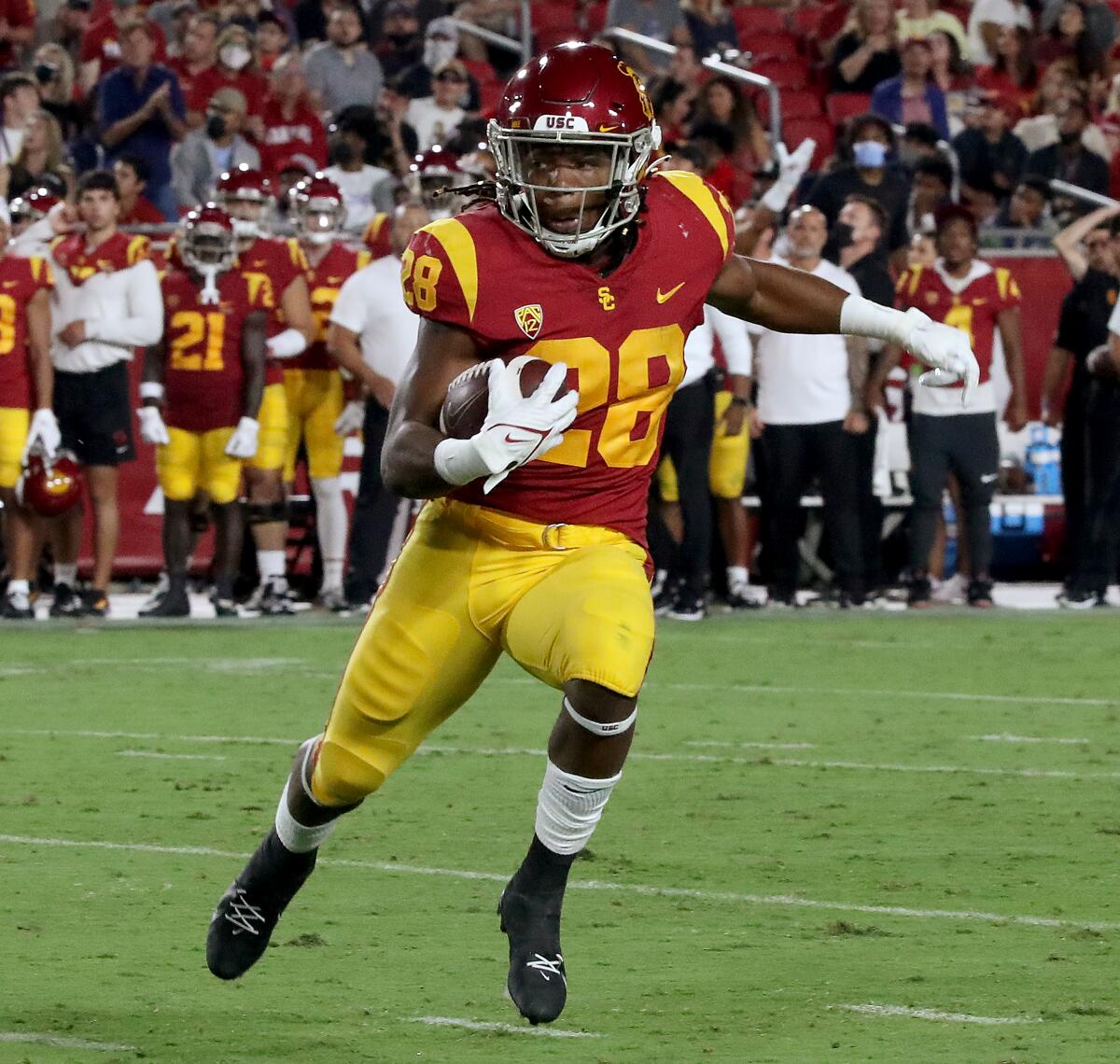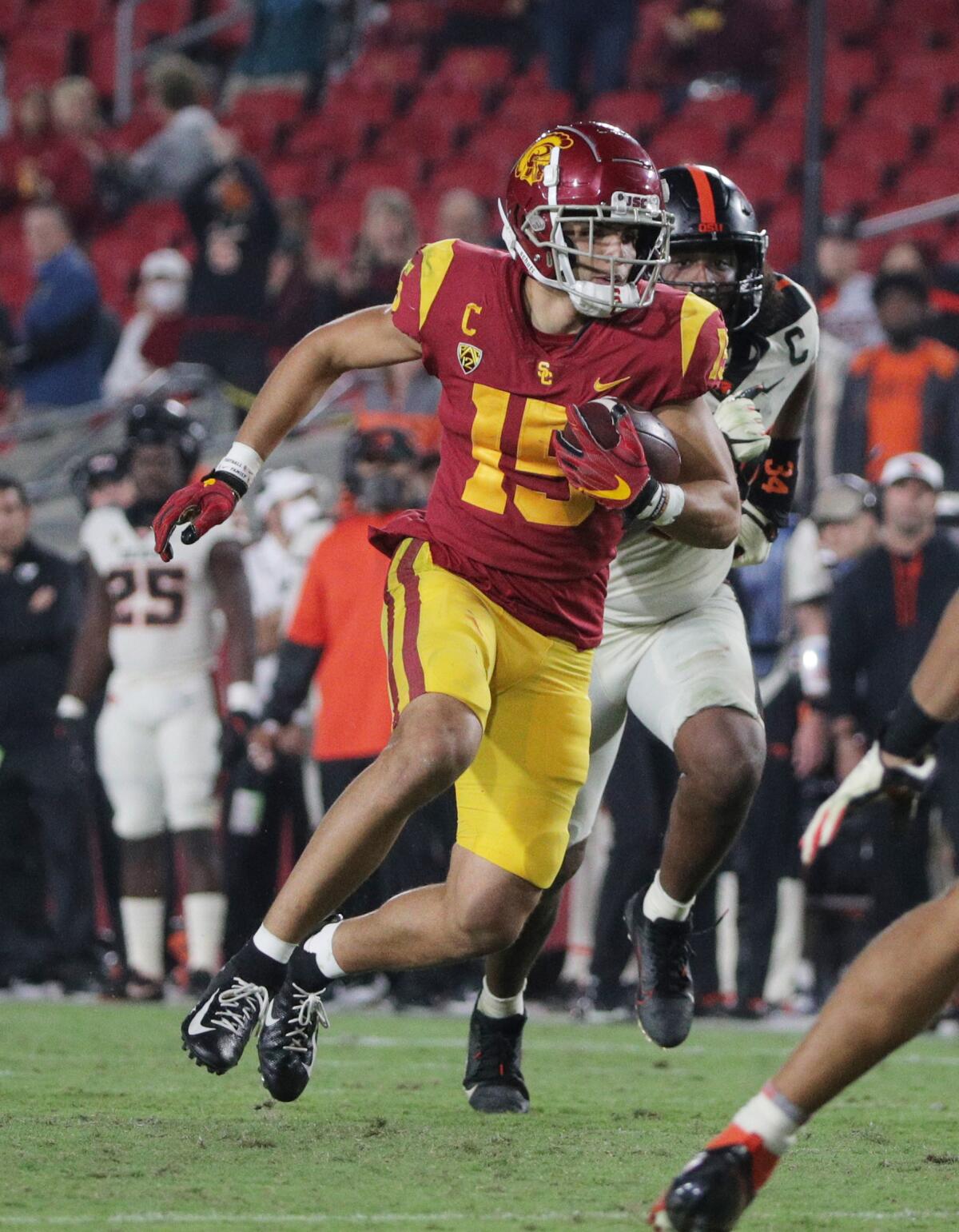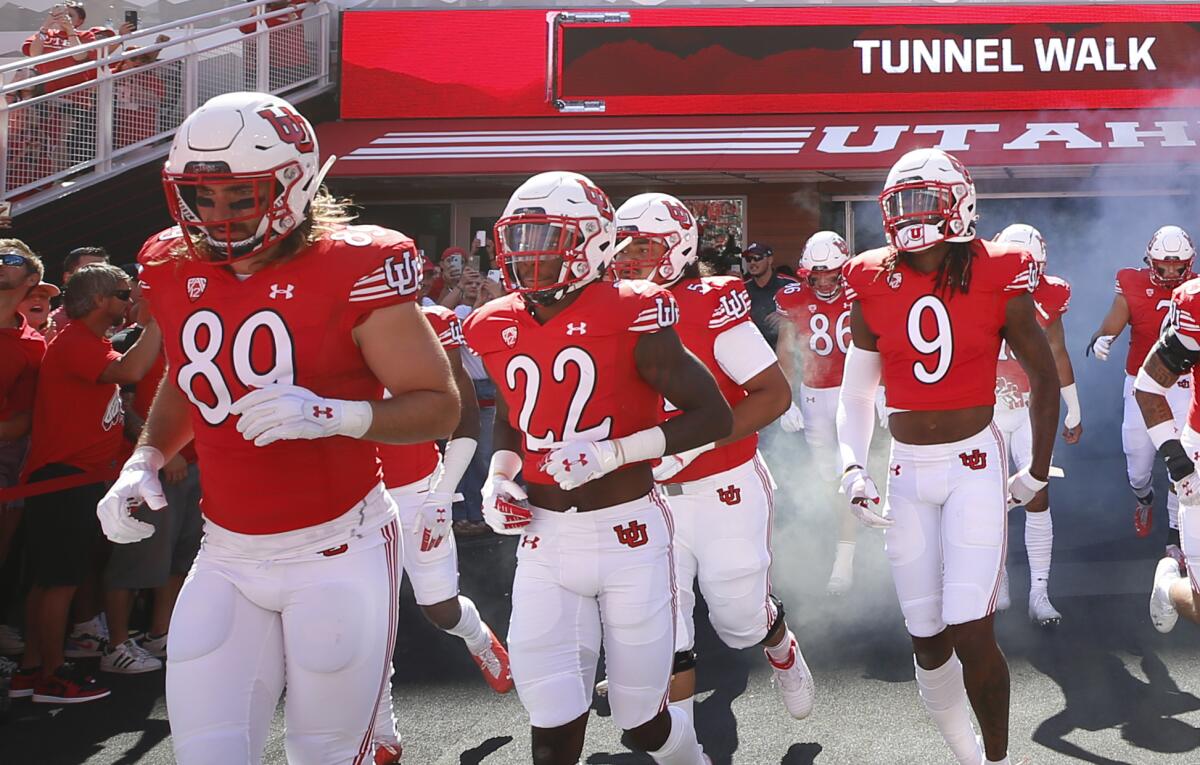Go beyond the scoreboard
Get the latest on L.A.'s teams in the daily Sports Report newsletter.
You may occasionally receive promotional content from the Los Angeles Times.
The comforts of home haven’t been comforting to USC this season. The Trojans are 0-2 in Pac-12 games at the Coliseum. If they have any hope of remaining in the conference race, they can’t afford to lose this week. Utah is 2-2, fresh off a bye following its own difficult start to the season, but brings a stout defense to the Coliseum. USC, which enters as a three-point favorite, hasn’t won consecutive games this season, but also hasn’t lost to Utah at home since the Coliseum was built.
“I don’t think anybody should come into your own home and wreak havoc,” wide receiver Drake London said, “so it’s definitely a point made this week.”
Both teams find themselves at a crucial crossroads ahead of Saturday’s 5 p.m. kickoff on Fox.

As Keaontay Ingram found his stride last Saturday, averaging more than nine yards per carry, USC’s offense finally seemed to find the balance it sought. With Colorado focused on stopping London, Ingram ran wild, and USC unlocked the full capabilities of its Air Raid offense, surpassing 200 rushing yards for the first time in almost two years.
Striking that balance won’t come so easily this week. Utah’s defense has allowed just 3.56 yards per carry, good for third in the Pac-12, while giving up just two touchdowns, the fewest of any team in the conference. Before its bye last week, Utah held Washington State to a paltry 70 rushing yards.
The matchup makes an intriguing test for USC offensive coordinator Graham Harrell, whose offense has struggled to maintain a consistent rushing attack since his arrival in 2019. Utah hasn’t had any trouble getting its ground game going. The Utes lead the Pac-12 in yards per carry (5.58) and boast a trio of capable backs, led by Long Beach native Micah Bernard.

Colorado made the mistake of trying to cover the nation’s leading receiver in man coverage last week. That mistake had ripple effects throughout USC’s offense. Whenever the Buffaloes left London one-on-one, he made them pay. Whenever they focused attention on London, USC went to the run game.
London, who leads with the nation with 48 catches for 670 yards, holds the keys to unlocking a balanced USC offense.
“That’s the beauty of what we do — or what we try to do,” Harrell said. “If you try to overload one guy, then the ball goes elsewhere. It should find open people. He definitely creates opportunities for other guys, whether it’s in the run game or the pass game, when they try to overplay him.”
That’s how USC’s offense should work against Utah. Whether it will is another question.

Interim coach Donte Williams wasn’t shy in expressing his dismay at the dozen penalties committed in Colorado. So on Tuesday, Williams had everyone on USC’s practice field — down to chief of staff Brandon Sosna — run 12 sprints to atone.
A day later, ahead of practice, Williams lit into the team for its lack of energy and demanded more.
During his three weeks on the job, Williams has tried to instill the accountability that was missing from the previous regime. The Trojans, who rank 120th in the nation in penalty yards per game, still have a long way to go. Under Clay Helton, USC never finished better than eighth in the Pac-12 in penalty yards.
Those mistakes could make the difference Saturday. Utah has committed the fewest penalties of any team in the conference, while new quarterback Cameron Rising has done well to limit mistakes. He hasn’t turned the ball over and has been sacked just once in three games.
For those planning to attend Saturday’s game at the Coliseum, new protocols regarding large, outdoor events from L.A. County are now in place.
Guidelines require that fans ages 12 and older show either proof of full vaccination against COVID-19 or a negative test taken within the last 72 hours. A photo of your vaccination card or a digital vaccine record will suffice.

Utah will be playing for the first time since cornerback Aaron Lowe was killed at a party early on Sept. 26. Lowe’s death came just nine months after another Utah player, Ty Jordan, died in an accidental shooting.
Coach Kyle Whittingham called the last year “the most challenging year of my coaching career, hands down, no question.”
“You never put it out of your mind,” Whittingham said. “But it’s just a therapy in and of itself, I guess you could say, getting back on the field.”
Go beyond the scoreboard
Get the latest on L.A.'s teams in the daily Sports Report newsletter.
You may occasionally receive promotional content from the Los Angeles Times.